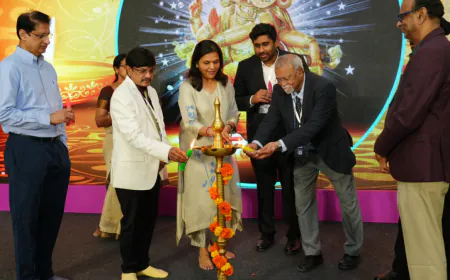New Zealand Changes Visa Rules To Meet Labour Demands. Know Details
Amid persistent labour market shortages, New Zealand has introduced significant updates to its visa and employment requirements to streamline immigration procedures.

Amid persistent labour market shortages, New Zealand has introduced significant updates to its visa and employment requirements to streamline immigration procedures. The changes are aimed at simplifying immigration pathways for both employees and employers with adjustments to work experience criteria, wage adjustment and visa durations.
To overcome the storage of labour, the New Zealand government has lowered the criterion for work experience for migrants from three to two years. The move will allow competent workers to find employment more easily in New Zealand while still meeting the requirements for their positions.
The country has also introduced two new pathways for seasonal workers to stay in New Zealand--a three-year multi-entry visa for experienced seasonal workers and a seven-month single-entry visa for lower-skilled workers. These pathways are made to accommodate seasonal labour demands.
Moreover, the median pay criteria for the Accredited Employer Work Visa (AEWV) and Specific Purpose Work Visa (SPWV) have been removed by the government. Under the new rules, though employers are obliged to post job opportunities and offer salaries as per market rate for the role and location, they are no longer needed to meet a predetermined salary criterion. This allows employers freedom while maintaining equitable worker remuneration.
For migrants wanting to bring their children to New Zealand, AEWV holders must now earn at least NZ$55,844 annually. This minimum threshold, which has not been changed since 2019, is intended to ensure that migrant families can sustain themselves financially while living in the country.
Further, New Zealand has extended the two-year visa period to three years for jobs which fall within the Australian and New Zealand Standard Classification of Occupations (ANZSCO) skill levels 4 or 5. The current employees in these jobs with a two-year visa, who fulfil the requirements, may seek a one-year extension.
Employers are also now not required to follow Work and Income's 21-day mandated recruitment period when posting job openings for skill level 4 or 5. They only have to advertise and interview qualified applicants to show that they are making an attempt to hire locally.
The government has also reduced the domestic workforce criterion for some roles from 35 per cent to 15 per cent in order to address labour shortages in the construction industry, making it easier for companies in this area to fill openings.
From this year, employers who are accredited, are also not required to complete the online training modules provided by Employment New Zealand. Instead, Immigration New Zealand will offer easily accessible resources on employment rights and responsibilities.
From April 2025, migrants who want to transition from a student visa or any other work to AEWV will be given interim work rights.
In a move that will benefit Indian students pursuing higher education in New Zealand, Wellington has modified the Post Study Work Visa (PSWV), permitting students to stay and work for up to three years in the country, depending on their qualifications. The new rules will ensure that students who complete a Master's degree following a Postgraduate Diploma do not lose eligibility for a Post Study Work Visa.
What's Your Reaction?


















































